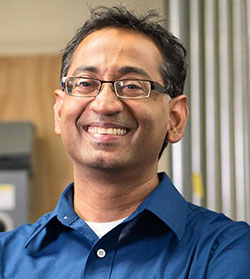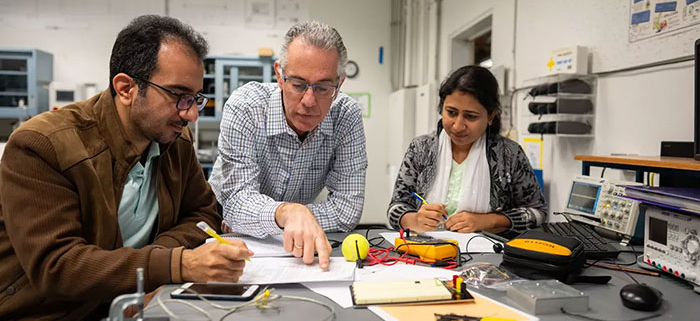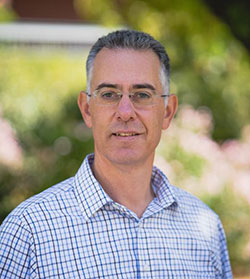UC Davis Venture Catalyst Launches the Fall Cohort of the Science Translation and Innovative Research Grant Program (STAIR)
Neelanjana Gautam
The University of California, Davis, is pleased to announce the autumn cohort of the Science Translation and Innovative Research (STAIR) Grant Program. The new initiative comes from the UC President’s Entrepreneurship Network Council that has developed the UC Proof of Concept (POC) Program to help each of the nine UC campuses build programs to help startups traverse the so-called “Valley of Death” for new innovations. The Council is providing a $2 million pilot funding to UC Davis as part of the five-year, $35 million matching fund commitment, aimed at supporting each UC campus efforts with the goal of sustainable programs by the end of the five-year term.
Managed by Venture Catalyst, a unit within the Office of Innovation and Economic Development, the program plays an important role in providing seed funding for early-stage research projects — enabling researchers to validate concepts and explore market potential during the challenging early phases in new technology development.
“Proof-of-concept funding has always been a critical part of the innovation cycle, allowing our faculty to develop new ideas on the way to commercialization. We are delighted to launch this new round of funds which is a key part of the Office of Innovation and Economic Development,” said George Baxter, chief innovation and economic development officer at UC Davis.
The $200,000 annual funding will help UC Davis entrepreneurs to target solutions in a range of applications including human and animal health, agriculture, environment and sustainability. The College of Letters and Science is providing supplemental funding of $25,000 to Professor Annaliese Franz for her STAIR award.
To facilitate the awards, the Venture Catalyst staff assembled external review committees consisting of industry professionals, investors and experienced entrepreneurs, who reviewed and recommended the proposals for STAIR awards, and offered feedback to all applicants. Each awardee and finalist were also paired with mentor(s).
Recipients of the 2024 Proof-of-Concept Grant program- Fall Cohort
Developing innovative vaccine platforms for the livestock population
 Annaliese Franz, Professor, Department of Chemistry
Annaliese Franz, Professor, Department of Chemistry
Franz’s project focuses on managing the health needs and preventing diseases in livestock and food-producing animals. The demand for animal vaccines and innovative vaccine platforms for the livestock population has been growing due to rising concerns over food security and increasing animal husbandry. In order to bridge the gap between basic research and early-stage commercialization efforts for livestock vaccines, Franz and team have recently developed new lipid nanoparticle (LNP) technology based on novel silyl lipids, and are currently working towards demonstrating the efficacy, safety and benefits of the team’s silyl-lipid LNP technology in vivo. The team will perform in vivo studies for safety and biodistribution with mice as an accessible, inexpensive, and well-studied model for companion, livestock and other animals.
Using a contactless device to monitor cardiovascular activities
 Omeed Momeni, Professor, Department of Electrical and Computer Engineering
Omeed Momeni, Professor, Department of Electrical and Computer Engineering
Cardiovascular diseases are one of the leading causes of death globally according to the World Health Organization. Electrocardiogram (ECG), which offers insight into the heart’s electrical activity during each heartbeat cycle, is among the most common ways to measure metrics such as HR and heart rate variability and for the interpretation of the cardiac rhythm. However, ECG is complex and is not suitable for long term continuous monitoring. Momeni proposes to use an ultra-low noise and highly sensitive radar sensor in a contactless device to continuously monitor the cardiovascular activities. The team hopes that this innovation for direct, high-resolution, non-invasive, continuous cardiac monitoring will transform the standard of care for high-risk patients.
Developing energy storage technology
 Vinod Narayanan, Professor, Department of Mechanical and Aerospace Engineering
Vinod Narayanan, Professor, Department of Mechanical and Aerospace Engineering
Narayanan and team are working on a technology that can be used to provide necessary cooling or heating to a temporary shelter, mobile disaster unit, or truck cabin conditioning for a period of several hours. The technology known as the Microchannel-based Efficient Low-cost Thermal Energy-storage Device (MELTED), is a compact, scalable device and conditioning system. In building space conditioning, MELTED can be coupled to a heat pump and air handler to lower peak electricity demand, associated greenhouse gas emissions impact on the grid, and cost. MELTED can be combined with a patented Microchannel Polymer Heat Exchanger to form a system for space conditioning.
A wearable device for worker activity assessment by harvest-aiding robots
Stavros Vougioukas, Professor and Vice Chair, Department of Biological and Agricultural Engineering
To reduce farmers’ dependence on farm labor during harvesting, PI Vougioukas and his team have developed mobile harvest-aid robots that carry trays in the field. By reducing the amount of non-productive walking to carry trays, the robots increase workers’ productivity and reduce slip-and-fall accidents. Under the STAIR grant, Vougioukas and team will develop a low-cost wearable device that straps on the worker’s arm, tracks the worker’s position and motions, and communicates worker activity data to a field computer – and eventually the robots – reliably over distances long enough to cover large fields. The wearable devices and the worker activity assessment and prediction algorithm will be tested in field conditions alongside a harvest-aid robot. The wearables developed in this project will fill a crucial gap in human-robot collaboration for harvesting, which is the reliable assessment of worker activity. The work will hold significant potential for farmers, ag equipment distributors, and contracting/rental companies.








